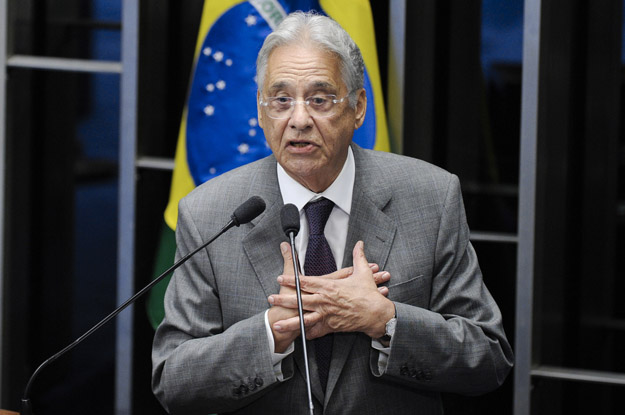A version of this article was first published in Portuguese on Poder 360.
In a recent interview, Brazilian President Michel Temer invoked the “voice of the streets” to say he would veto a so-called “Caixa Dois” bill – a proposal that would grant legislators amnesty for irregularities involving election financing – if Congress approved it. His stance is doubly auspicious: First, for the content itself, preventing the adoption of very low standards for how candidates obtain money for their campaigns. Second, for showing sensitivity by understanding the desire Brazilians expressed literally in the streets, including this Sunday, as well as in the busy avenues of social activism flooding the Internet.
Throughout the world, the financing of representative democracy is being fundamentally questioned. Never again will politics be the same. And this reform movement, carried out by new actors, especially young people, is demanding a complete renewal of how political parties and governments operate – in Brazil and elsewhere.
People are requesting new forms of dialogue to replace closed-door meetings and traditional speeches, where one leader speaks and the audience listens. Now, armed with extraordinary communication tools, everyone wants to speak – and furthermore, they want to be heard by the world of power. Like it or not, that’s how it works these days.
New messages flood social media. They express causes and anxieties not always easily or quickly perceived by the status quo. They are demands and desires from different social groups, propositions that are not restricted to the “struggling class” and do not fit into the old “left or right” dichotomy: they also depend on the positive or negative definition of people in the face of causes and values spread in a globalized society.
People react as such; “people” who, as citizens, are not only interested in the typical claims of democratic societies, such as human rights and citizenship expansion, but encompass the quest for freedom to live in a diverse way, with dignity, in the consumer society.
They want acceptance for their diversity of gender, race, religion, and sexual behavior. They want to participate in a decent society that serves them well in public services without privileging a caste of government officials, businessmen or politicians, accustomed to the comforts and advantages of power and, worse than that, who go unpunished when their actions contradict laws and moral values.
The algorithm that governs policy has changed. The era of elitist and demagogic politics is over. Now those who try to sound pompous or hide their game quickly become ‘fake.’ Before everything was hidden; now, nothing goes unnoticed. Collusion is now unthinkable. To get noticed and win elections, it is not enough to present or sell good ideas; it is necessary to align, to talk, to convince, to respect, to listen. Today, ears are more important than mouths in politics.
Will politics be able to reinvent itself in order to welcome this contemporaneous participation of the people and, at the same time, reform the parties and the representative institutions so as to ensure that the will of the majority will be verified? I hope so, but no one knows for sure what will be the result of this deep crisis that is shaking the democratic system.
In the United States, it resulted in Trump, perhaps because of the exaggerations of so-called “identity” politics. In the U.K., Brexit. The perverse sides of the “unhappy globalization” (increased inequality and lack of jobs) prevailed.
And in Brazil, where will we go?
—
Cardoso, a sociologist and member of Americas Quarterly’s editorial board, was president of Brazil from 1995 to 2002.







